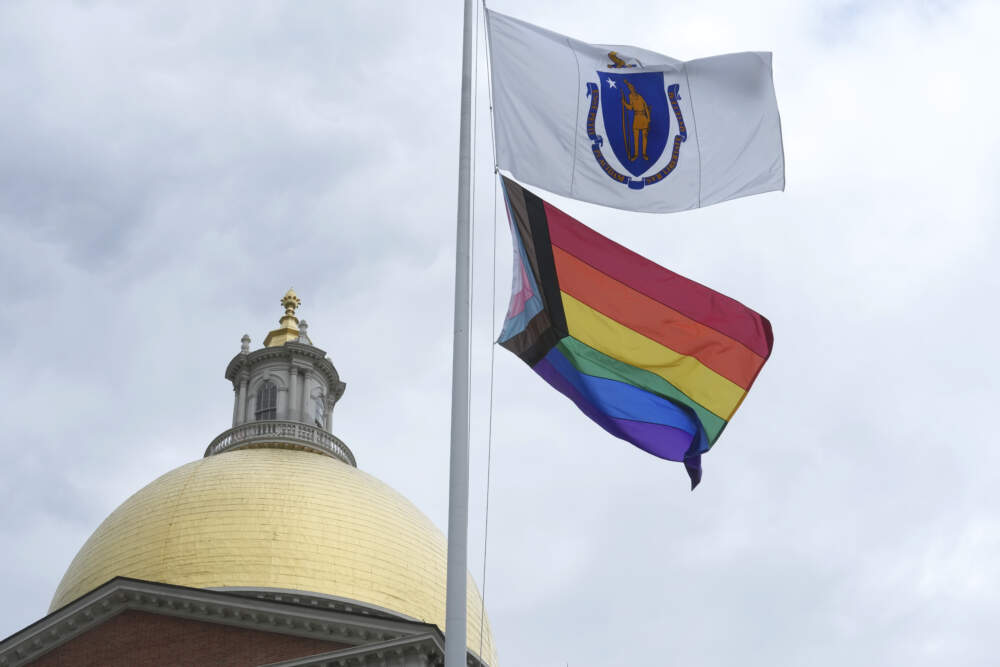Advertisement
New state board to help LGBTQ veterans discharged under 'don't ask, don't tell' get benefits

Gov. Maura Healey on Wednesday swore in the members of a new state board set to help get state benefits flowing to veterans who were denied an honorable discharge because of the U.S. military's former "don't ask, don't tell" policy.
The reception in the governor's office was part celebration — coming 12 years to the day since the repeal of "don't ask, don't tell" — but also marked "an occasion to say our work is not done," Healey said.
The Veterans Equality Review Board, established in the fiscal 2023 state budget, is tasked with reviewing applications from Massachusetts vets "who believe they received an 'other than honorable discharge' due to their sexual orientation, gender identity, or gender expression." The board can then recommend those veterans for state-level benefits.
Starting five-year terms on the new panel are: VA Boston clinical psychologist Claire Burgess, Home Base project manager Cliff Brown, Wachusett district veterans' services director Lynette Gabrila, VA Boston staff psychologist Christine Serpe, and U.S. Army Reserve veteran Rachel McNeill.
Also Wednesday, the U.S. Department of Defense launched a new website to help people discharged under the policy "request a correction to their military record."
"I'm pretty sure that folks of all sexual orientations, gender identifications, I'm pretty sure we bleed the same color," state Sen. John Velis, a U.S. Army Reserve veteran and National Guard member who was deployed to the Middle East, said.
The Westfield Democrat said that in the service, when soldiers are sitting around and talking, the "number one pastime" is to talk about family members back home.
"They'll start talking about their loved ones, whatever it may be. Their kids, husbands, wives... And for the longest time, there was a segment of the population who could not do that. I can think of nothing more morally reprehensible than that," he said.